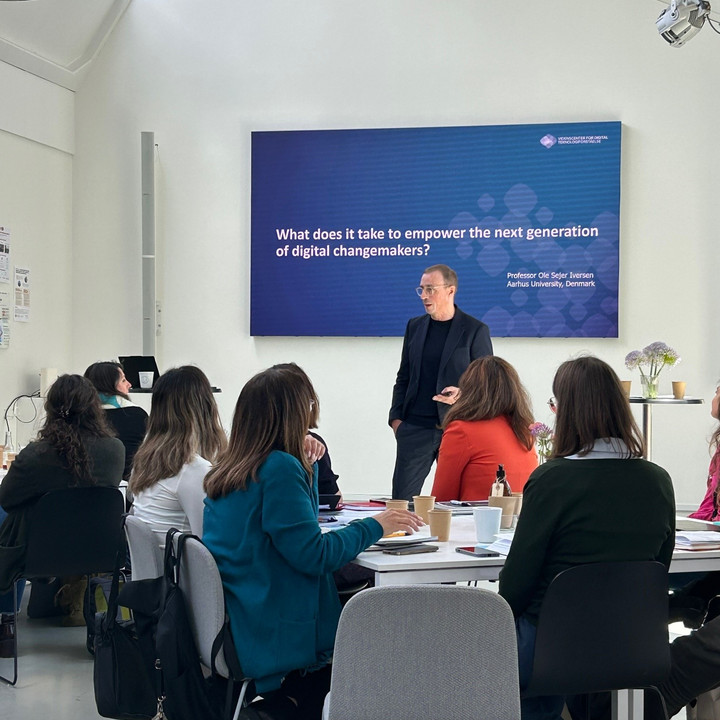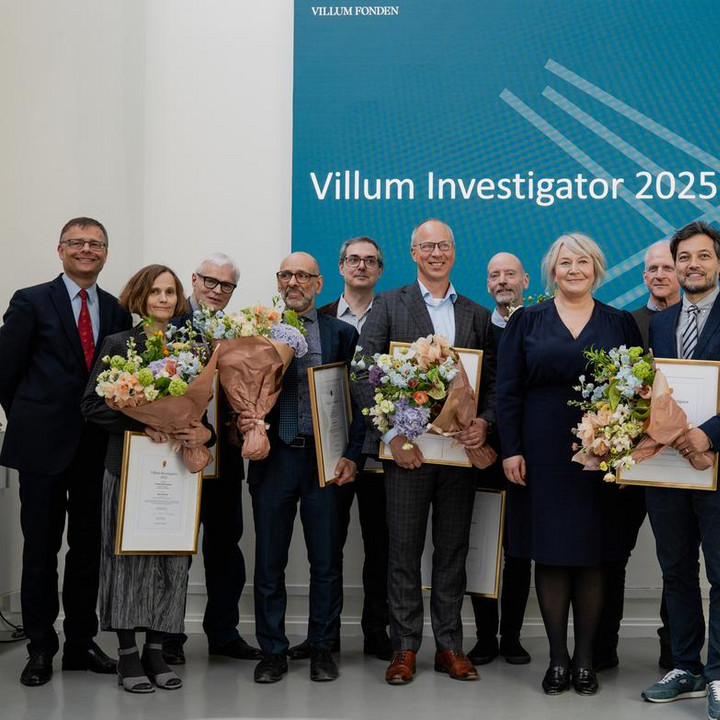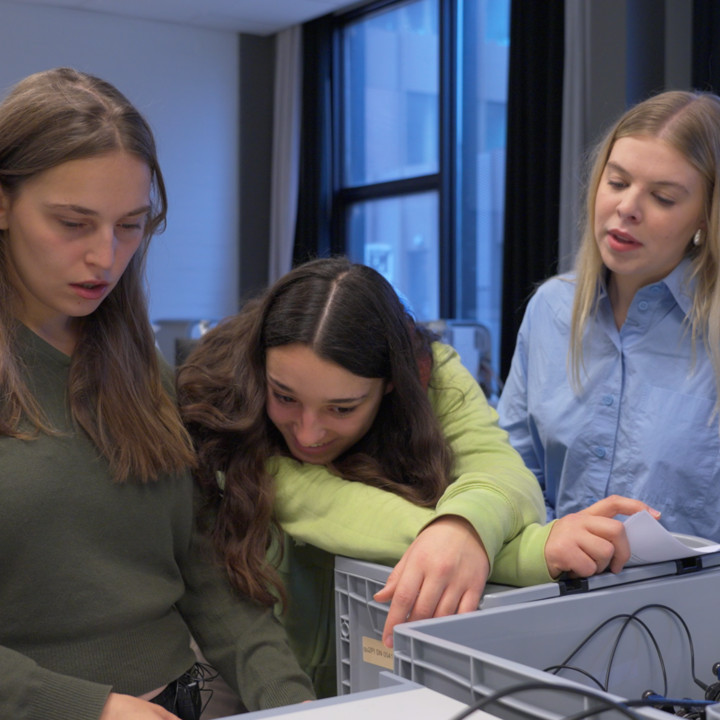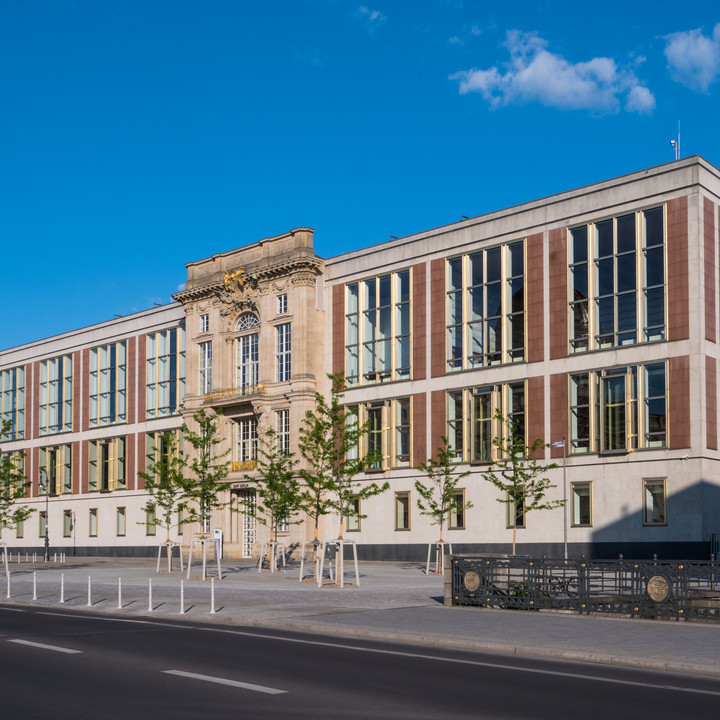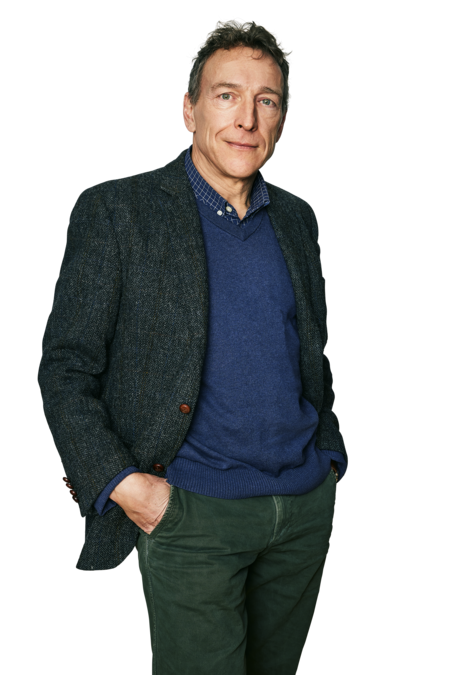Villum Experiment: DKK 100m to 51 extraordinary research experiments
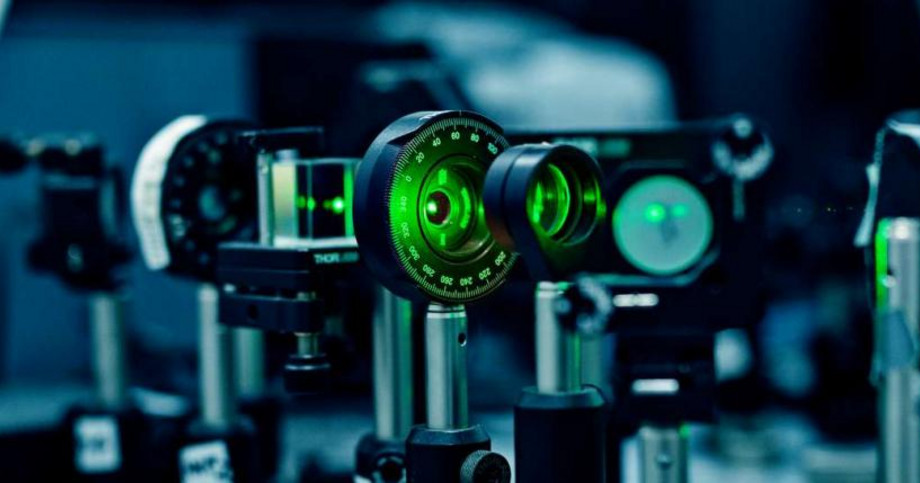
10.09.2020 I Latest news
51 researchers are receiving grants to test their bold and strange research ideas in technical and natural sciences. The projects have been selected from among nearly 500 applications that have been through an anonymous selection process.
Focus
The Villum Experiment Programme has been created for research projects in technical and natural sciences that challenge the norm and have the potential to change the way we approach important subjects. The applicants are anonymous to the international assessors to increase the focus on the research ideas and to let the researchers think freely.
The grant is of DKK 1-2m and runs for up to two years. The programme is announced each year in an open competition with an application deadline in March.
VILLUM FONDEN has initiated a research evaluation of the Villum Experiment Programme to examine whether it meets the objective. The data collection is in process.
Read more about the Villum Experiment Programme
“One experiment is better than 1,000 expert assumptions.” The founder of VILLUM FONDEN, Villum Kann Rasmussen, lived by this motto. He experimented tirelessly and invented everything from coffee machines and wind turbines to the VELUX skylight. The Villum Experiment Programme puts millions behind the motto and allows researchers to test their wildest ideas.
“Nothing ventured, nothing gained is a key principle of the Villum Experiment Programme. The purpose of the programme is to find and support outstanding research projects in technical and natural sciences that challenge the norm and have the potential to change the world and our knowledge of the world. The programme is an experiment in itself and has been conceived completely differently from typical research grant programmes. During the application processing process, the applicants are anonymised for the assessment panel, and the panel members thus only assess the applicants based on whether their research ideas are groundbreaking, without taking their CVs and academic track records into account,” says Thomas Bjørnholm, Executive Chief Scientific Officer of VILLUM FONDEN.
The assessment process
The overall success rate for applicants for this year’s Villum Experiment Programme is just over 10%. The applications have been assessed by an assessment panel consisting of 20 international external experts divided into four sub-panels: ‘Earth & Space’, ‘Life Science’, ‘Physical Science & Math’ and ‘IT & Engineering’ (see selection process)
The assessors have weighted the applications based on three parameters:
- Originality
- Potential impact
- Appropriateness in relation to the programme
Each external expert has also had the opportunity to allocate a so-called ‘trump’ to an application to give this application precedence (see review sheet)
A total of 195 researchers have received a grant under the Villum Experiment Programme since its start in 2017. This year, DKK 99,604,815 will be distributed between 51 researchers attached to Danish universities. Their experiments cover a wide range of projects – from low methane emitting milking cows to the mysterious methane gas on Mars. The only common denominator for the researchers is originality and that they have the technical and natural sciences as their starting point.
Professor Dennis Sandris Nielsen from the Department of Food Science at the University of Copenhagen wants to make ruminants more environmentally friendly. The Villum Experiment Programme grant will be used to examine whether his idea for reducing livestock methane emissions is valid:
“Emission of methane from ruminants is a major climate problem. The methane is produced by a group of microorganisms called Archaea. We will develop a technique for reducing methane emissions by killing Archaea by means of some viruses that specifically attack this group of microorganisms. However, it won’t be easy, as Archaea also has a number of defence mechanism against these viruses. This makes it a high risk/high gain project, but if our idea proves to work in practice, it will be a breakthrough in our efforts to reduce the climate impact of the agricultural sector,” explains Professor Dennis Sandris Nielsen.
Alexander Zelikin, Associate professor, Polymer recycling via monomer reuse, DKK 2 million.
Jacopo Catalano, Assistant professor, Electrochemical Hydrogenation of biO-crude (ELHYOs), DKK 1.8 million.
Jakob Juul Larsen, Associate professor, Surface NMR with long excitation pulses - technicality or game changer?, DKK 2 million.
Kai Finster, Professor, Methane, a sign of life - what drives its dynamics on Mars?, DKK 2 million.
Kasper Urup Kjeldsen, Associate professor, The cellular ultrastructure of Asgard archaea - the ancestors of the eukaryotic cell, DKK 2 million.
Kim Daasbjerg, Professor, Developing a Chemically Self Sustaining Martian Society, DKK 2 million.
Mette Vestergård, Tenure Track Researcher, Transfer of biochemical defence between plant species, DKK 2 million.
Rumakanta Sapkota, Researcher, Mycoviruses: a hitherto unknown member of the soil food web, DKK 2 million.
Søren Lykke-Andersen, PhD, AUGMENT: Targeted upregulation of protein expression using artificial small RNA guides, DKK 2 million.
Alexander Buell, Professor, Massive Exploration of the Sequence Dependence of Protein Phase Separation, DKK 2 million.
Ali Sarhadi, Researcher, 3D printing of high-performance continuous fiber composites (CFC) for repair of wind turbine blades (PrintRepair), DKK 2 million.
Benedikt Axel Brandes, PhD, Metal vapors in catalyst synthesis – a superior route to advanced materials?, DKK 1.2 million.
Bhaskar Reddy Sudireddy, Senior researcher, Virus free high yield bacteria for food ingredients – Electrified ceramic membrane reactors an answer?, DKK 2 million.
Brian Seger, Associate professor, Electronic Tunneling as a Tool for Understanding Electrocatalysts Activity & Selectivity, DKK 2 million.
Christos Markos, Associate professor, Mid-infrared photoacoustic microscopy: listening to biological molecules, DKK 2 million.
Eike F. Rades, Dr. rer. nat., Using rock surface luminescence dating of stone tools to track early human migration throughout the world, DKK 1.9 million.
Hao Wu, Associate professor, Reburning of waste plastics for NOx reduction, DKK 2 million.
Henning Osholm Sørensen, Senior researcher, Opening the black box: imaging nanoparticle transport in porous media, DKK 2 million.
Jens Wenzel Andreasen, Professor, GRAZing Incidence X-ray Ptychographic MicroscopY - GRAZY, DKK 2 million.
Mads Clausen, Professor, A paradigm shift in carbohydrate chemistry: stereocontrolled glycosylation, DKK 2 million.
Massimiliano Rossi, Associate professor, Ultrasonic evolution of microalgae: A Darwinian approach for biofuel production, DKK 2 million.
Mayank Jain, Senior researcher, Does Charge Movement in Minerals Drive Landscape Evolution? (CRACK), DKK 2 million.
Michael Bache, M.Sc. Ph.D., Study of electromagnetic communication between chiral drug molecules and its receptor in water, DKK 2 million.
Ming Chen, Professor, One-step synthesis of green ammonia from renewables, DKK 1.8 million.
Rasmus Toft-Petersen, Senior researcher, Magnetic switching near absolute zero, DKK 1.8 million.
Shima Kadkhodazadeh, PhD, How hot are plasmonic hotspots? Probing the chemical reactivity of plasmonic nanoparticles with electrons, DKK 2 million.
Stefan Trapp, Professor, Remediation of marine dead zones by enhancing microbial sulfide oxidation using electrodes (REDOX), DKK 2 million.
Søren Kramer, Assistant professor, Sustainable Synthesis of Advanced Organic Molecules by Asymmetric Catalysis and C-H Functionalization, DKK 2 million.
Xinglin Jiang, Researcher, Hunting for totally new bacterial natural products, DKK 1.9 million.
Xinxin Xiao, Dr., Enable bioelectro-synthesis of chiral amines (EnBioAm), DKK 2 million.
Adriano Agnello, Assistant professor, Cosmic Beacons, DKK 2 million.
Alexander Byth Carstens, Postdoc, ViralX - Determinants of viral crossing of species barriers, DKK 2 million.
Anders Løbner-Olesen, Professor, PhD, Engineering biological memory in bacteria, DKK 2 million.
Anurag Kumar Sinha, Postdoc, Engineering bacteria for self-sabotage, DKK 2 million.
Chatchai Kosawang, Assistant professor, How do mother plants protect their seedlings?, DKK 2 million.
Dennis Sandris Nielsen, Professor, ClimateCow: Reducing ruminant methane emission by killing methanogenic archaea with viruses, DKK 2 million.
Frederik Diness, Associate professor, Lignin mimetics – Polymer materials derived from tree that will degrade at land and in the sea, DKK 2 million.
Jakob Frimodt-Møller, Ph.D., Insane in the membrane; how to avoid crowding of the Escherichia coli inner membrane?, DKK 2 million.
Joseph Nesme, Dr., Catch me if you conjugate. Plasmid recovery from complex ecosystems using secreted pilus machinery as a hook., DKK 2 million.
Karel Miettinen, Postdoc, ARTIFICIAL OLFACTION: Biological perception, digital encoding, and chemical reproduction of the sense of smell, DKK 2 million.
Maria Herranz Matesanz, PhD, Tiny dragons (Kinorhyncha) answering big questions - insights into metazoan segmentation, DKK 1.9 million.
Mette Burmølle, Associate professor, PhD, Printing nature to study nature- artificial 3D-leaves for ecologically relevant studies of bacterial biofilm communities, DKK 2 million.
Nicolai Johansen, Researcher, Direct extraction of active membrane proteins and complexes for cryo-EM, DKK 2 million.
Rasmus Havmøller, PhD, Lifetime tracker: using kinetic GPS tags to track animals from birth to death, DKK 2 million.
Tobias Heinemann, Associate professor, Challenging the Current Paradigm for Planet Formation, DKK 2 million.
Daniel Wüstner, Associate professor, Towards a Thinking X-ray Microscope: Deep Learning to Predict Fluorescence Labels of Cellular Organelles in SXT, DKK 2 million.
Himanshu Khandelia, Associate professor, A Novel Voltage-sensing Nano-device based on Flexoelectric Coupling in Lipid Membranes, DKK 2 million.
Iris Adam, Dr., The singing bird brain: an out-of-body experiment, DKK 2 million.
Jacek Fiutowski, Associate professor, NanoTrain: Programmable colloidal nanomachine, DKK 2 million.
Shailesh Kumar, Postdoc, Room-Temperature Generation of Indistinguishable Single Photons, DKK 2 million.
Rosario Giustolisi, Assistant professor, Enabling User-Accountable Mechanisms in Decision Systems, DKK 2 million.
